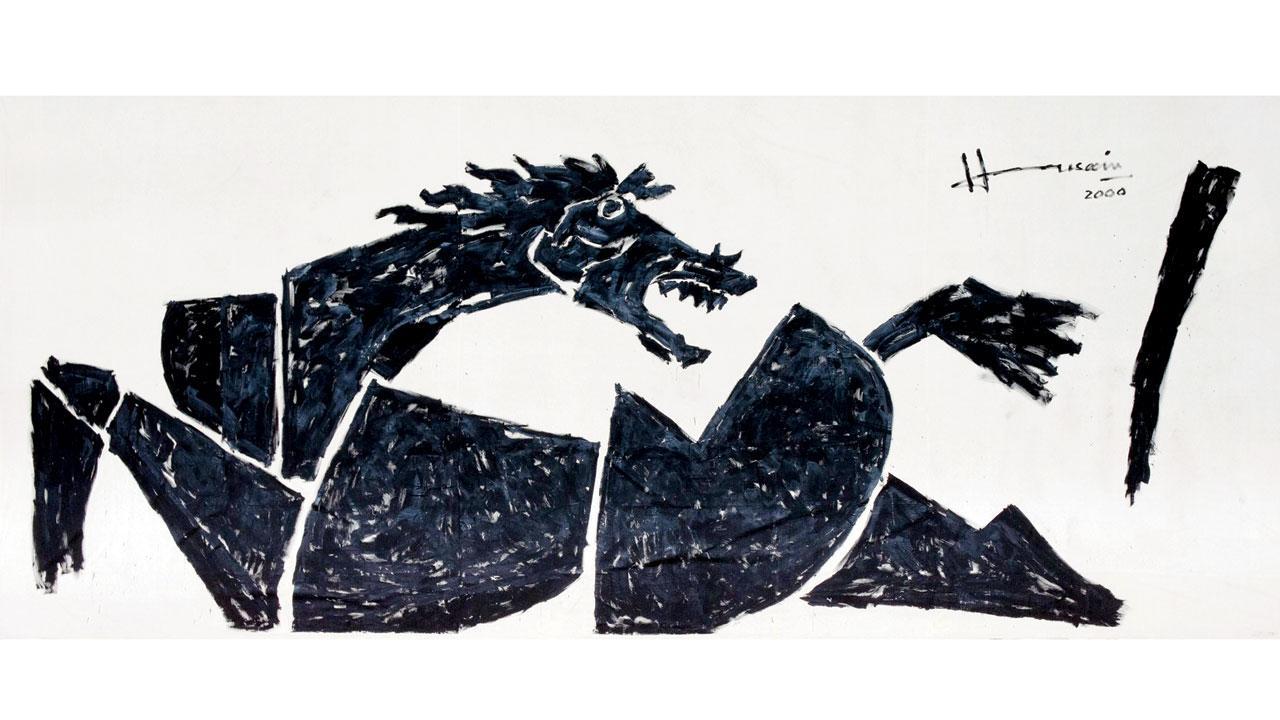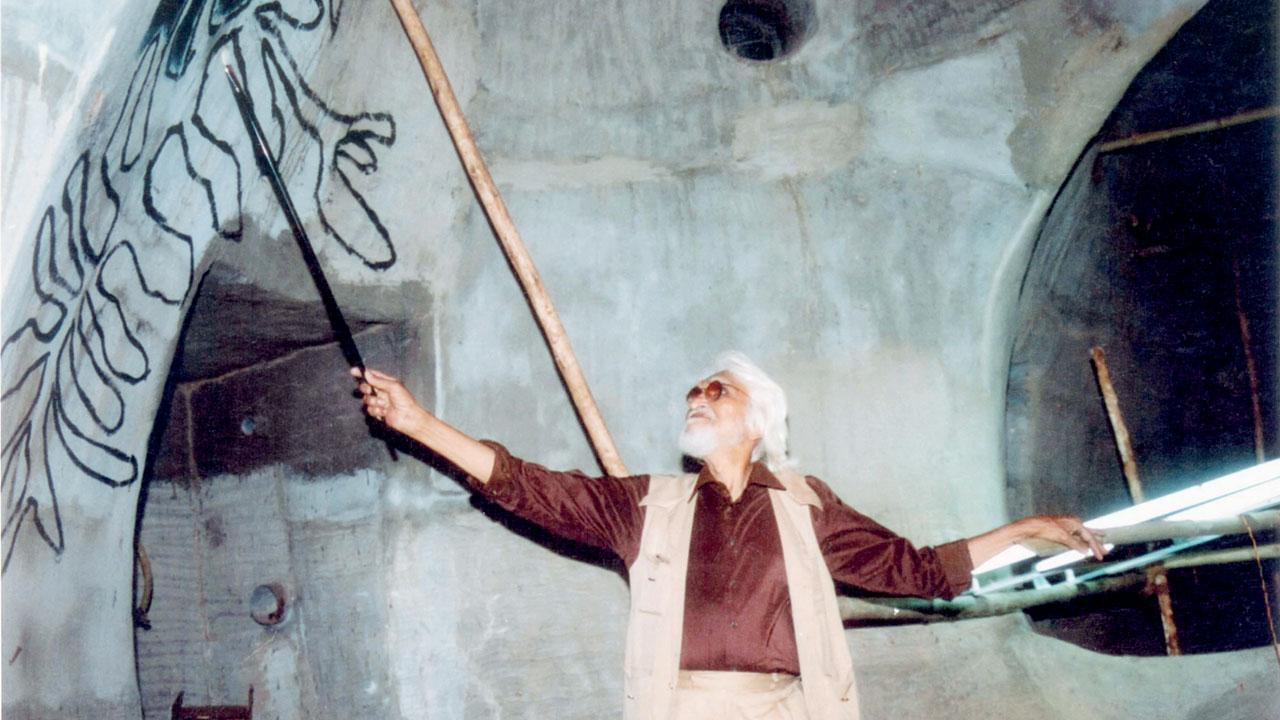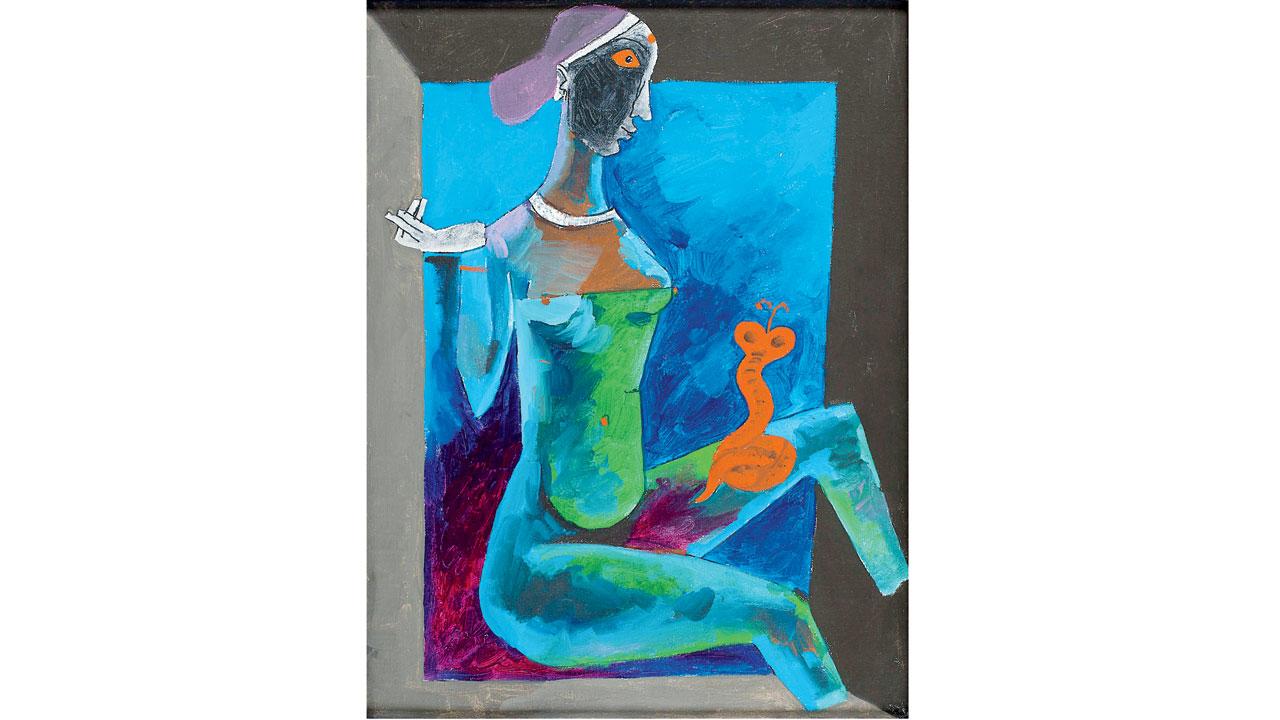Master Maqbool invites you to witness the repertoire of the iconic artist’s works between the 1960s and 2000s, and delve into the sweeping canvas of the country

Untitled, acrylic on cloth, 2000
The mention of MF Husain almost always brings back an early memory of intently looking at a painting of a herd of horses for this writer, which is a personal testament to the artist being commonly recognised by many for his equestrian subject. This week, Delhi Art Gallery’s (DAG) Master Maqbool, a show of Husain’s works presented at Mumbai’s Taj Mahal Palace, will have on display the iconic 12-foot untitled black horse by the artist for the first time since it was used as the backdrop for a performance by tabla maestro Zakir Hussain at the Kala Ghoda Festival decades ago.
ADVERTISEMENT

MF Husain
It is not the fact that Husain started as a billboard painter that trails the creation of this iconic painting but its sheer scale that fits the larger-than-life artist that he was. Kishore Singh, senior VP at DAG, points out further details of the painting that reiterate the panache with which it has been created. He highlights Husain’s ability to create a sense of perspective drawing freehand even at that early age of painting cinema hoardings on then-Bombay’s streets. “Within the black, you can see his vivid brush strokes, the vitality of the horse, the wind in the mane and tail [is visible] in the way he’s turning back, which is how he painted many of his horses, creating that sense of vagility, grace, movement and momentum. You see all of that, perhaps more powerfully and graphically because of the black-and-white [palette]. You notice strong Cubist elements because he’s broken up the body into several planes,” he elaborates.

Cobra girl, acrylic on canvas. Pics Courtesy/DAG
At the same time, Singh notes that while being celebrated as a painter of horses, the artist’s range of subjects is massive. The exhibition will showcase this diversity within 24 artworks from the 1960s to the 2000s. This includes an untitled 1960 piece of Rajasthan — one of the few landscape paintings that Husain created, and a series on toys made in 1975 that throws back to the time when the painter made toy and furniture designs for children’s nurseries in the early 1940s. Singh points us to the three small portraits of a king, queen and peasant from the 1960s, and says, “With heavy texture and encaustic elements, you can almost sense Husain sahib’s hand, his brush and other elements that give shape to these heads. I find that set incredible.”
What further highlights the diversity of the show is showcasing the large horse painting along with other works. While one would typically want to view a large work at a distance, putting it in the gallery, along the length of a wall and with other works, can create a sense of intimacy and build relationships within the eclectic set for viewers to grasp the artist’s oeuvre, the works held within the show.

Kishore Singh
Singh tells us that Master Maqbool offers a chance to celebrate Husain and the city where he established his credentials as India’s most popular artist. Like us, he recollects his own memories of the artist, including one that goes back to 1982 of Husain climbing up scaffoldings to paint the ceiling of a Delhi hotel, sitting on the floor there drinking chai and chatting away. Singh concludes, “For me, Husain sahib and his practice are inextricably linked with who we are as Indians. He brings up aspects of Indian culture and history very powerfully in his work and when you have a body of work that spans a 40-to-50-year journey, you’re experiencing the story of India through his canvases. And I think that’s very important for viewers to remember — how closely he knit the story of the country with that of people’s lives.”
From: December 16 to mid-January 2023, 11 am to 7 pm (Monday to Saturday)
At: Taj Mahal Palace, Colaba
 Subscribe today by clicking the link and stay updated with the latest news!" Click here!
Subscribe today by clicking the link and stay updated with the latest news!" Click here!







